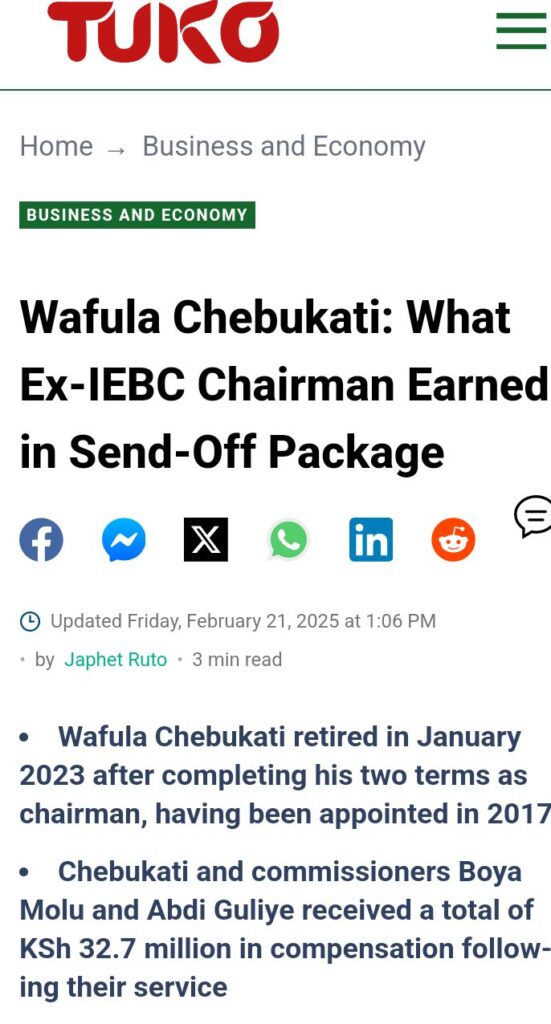Wafula Chebukati, the former chairperson of the Independent Electoral and Boundaries Commission (IEBC), passed away on Friday, February 21.
His family confirmed that he died at The Nairobi Hospital. Chebukati was appointed as IEBC chairman in 2017 and served for two terms before retiring in January 2023.
His tenure was full of controversies, mainly due to the disputed 2017 elections and the political battles that followed.
One of the key issues after his passing is his send-off package. The Salaries and Remuneration Commission (SRC) has guidelines on how state officers in full-time constitutional commissions are compensated after leaving office.
According to these guidelines, an officer is entitled to service gratuity at the rate of 31% of their annual pensionable earnings.
This formula was used to calculate Chebukati’s final benefits after leaving office.
As the IEBC chairman, Chebukati received a basic salary of KSh 554,400 per month. In addition to this, he had a house allowance of KSh 200,000 and a pay market adjustment of KSh 169,600. This brought his total monthly earnings to KSh 924,000.
When calculating his gratuity, the 31% rate was applied to his basic salary over six years. Based on these calculations, his gratuity amounted to KSh 12.4 million.
His fellow commissioners, Boya Molu and Abdi Guliye, who left office at the same time, also received substantial payments. Molu and Guliye had a monthly salary of KSh 459,113, along with a house allowance of KSh 150,000 and a pay market adjustment of KSh 156,075.

Over their six years of service, their gratuity payments each amounted to KSh 32.7 million. Without including other benefits, each of the two commissioners received KSh 33.06 million, while Chebukati’s total send-off package was KSh 39.92 million.
Chebukati’s time as IEBC chair was turbulent. He was appointed by then-President Uhuru Kenyatta to replace the Isaack Hassan-led commission.
His tenure was tested immediately when the Supreme Court nullified the results of the 2017 General Election, citing massive irregularities. This decision led to a repeat election, which was boycotted by opposition leader Raila Odinga, causing more political tension.
Throughout his time in office, he faced criticism from different political sides, with some accusing him of bias while others defended his independence.
Despite the controversies surrounding his leadership, Chebukati completed his term and left office in January 2023. His passing marks the end of a chapter in Kenya’s electoral history, one that was marked by legal battles, political divisions, and questions about the credibility of elections.
His legacy remains a topic of debate, but his financial send-off was clearly defined by government regulations, ensuring he received millions in compensation for his years of service.


